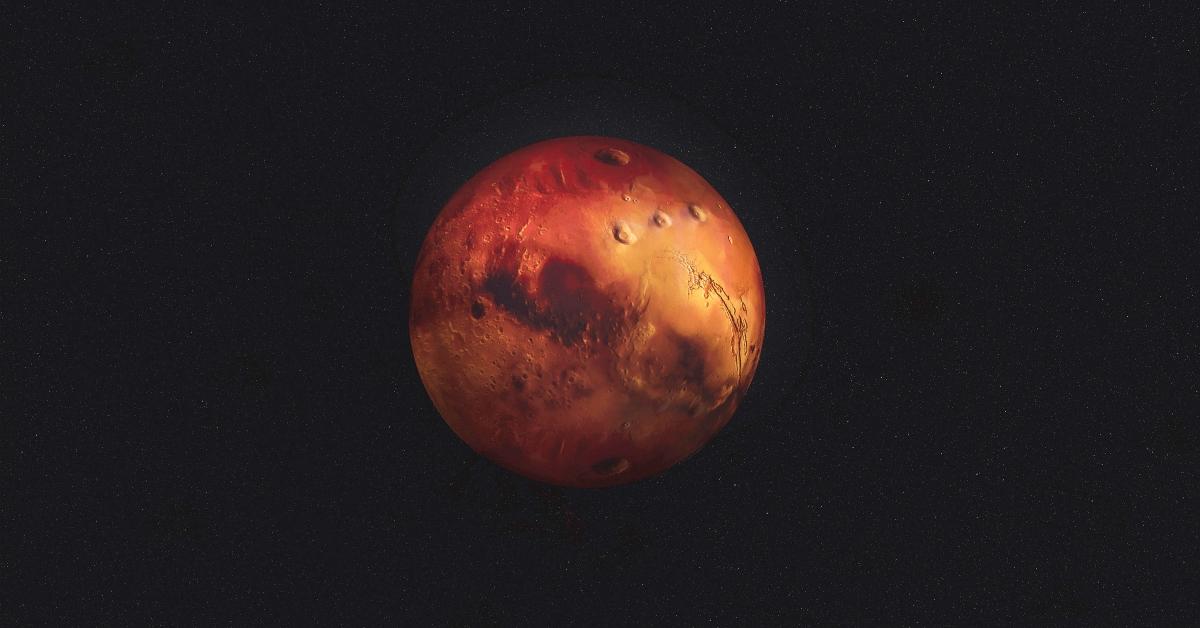If We Nuke Mars, Would It Really Become an Earth-Like Planet?
Published June 1 2023, 9:22 a.m. ET

Tesla billionaire Elon Musk is obsessed with the planet Mars. His space exploration company SpaceX was actually born from Musk’s dream of the future colonization of Mars. Musk shocked many people in 2015 when he suggested we nuke Mars.
“It is a fixer-upper of a planet,” Musk said during a 2015 appearance on The Late Show with Stephen Colbert.

Why does Elon Musk want to nuke Mars?
Musk says dropping nuclear weapons at Mars’ poles would help the planet warm up quickly, eventually making it easier to transform Mars into an Earth-like planet.
"Nuke Mars refers to a continuous stream of very low fallout nuclear fusion explosions above the atmosphere to create artificial suns. Much like our sun, this would not cause Mars to become radioactive," Musk tweeted on Aug. 20, 2019.
The idea is that the nuclear explosions would vaporize Mars’ ice caps providing water vapor, carbon monoxide, and greenhouse gases that would warm the planet, reports Space.com.
According to the National Weather Service, the average temperature on Mars is minus 80 degrees, and it can get as cold as minus 220 degrees. At those frigid temperatures, water on Mars only exists as ice or vapor. However, scientists believe that Mars 4 billion years ago was a different planet with rivers of flowing water and blue skies.
Will nuking Mars warm it up?
There’s plenty of skepticism about whether Musk’s suggestion to nuke Mars would work. Worse yet, it could backfire. Instead of warming up the planet, the nuclear explosions could produce a "phenomenon known as ‘nuclear winter,’ wherein you generate so much dust and particles that they literally block out a significant portion of the incoming sunlight, cooling down the planet,” climate scientist Michael Mann told U.S. News & World Report in 2015.
“There are so many things that could go wrong here it is difficult to know where to start,” Mann said.
Is terraforming Mars possible?
While Musk’s idea to nuke Mars may not transform it into an Earth-like planet as he hopes. Retired NASA scientist Jim Green has his own ideas on terraforming the Red Planet. Green’s plan involved placing a giant magnetic shield between the planet and the sun. The shield would stop the sun from stripping Mars’ atmosphere, enable the planet to trap more heat and warm its climate, Green told The New York Times.
“Stop the stripping, and the pressure is going to increase. Mars is going to start terraforming itself. That’s what we want: the planet to participate in this any way it can. When the pressure goes up, the temperature goes up,” Green told The New York Times.
Casey Handmer, the founder of Terraform Industries, also has a plan for warming up Mars, which he outlined in a blog post titled “How to terraform Mars for $10 billion in 10 years.” Handmer’s idea is to mass produce small-scale solar sails in cell phone factories and launch them into Earth’s orbit, where they will fly themselves to Mars. The sails would reflect sunlight onto the night side of the planet, thus raising the planet’s temperature.
“Given sufficient control of our sails, we may be able to focus the sun’s heat on discrete locations on the surface of Mars, heating and calcinating ancient carbonate deposits and greatly increasing the quantity of CO2 available for warming,” Handmer writes in his blog.